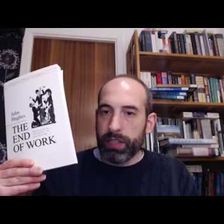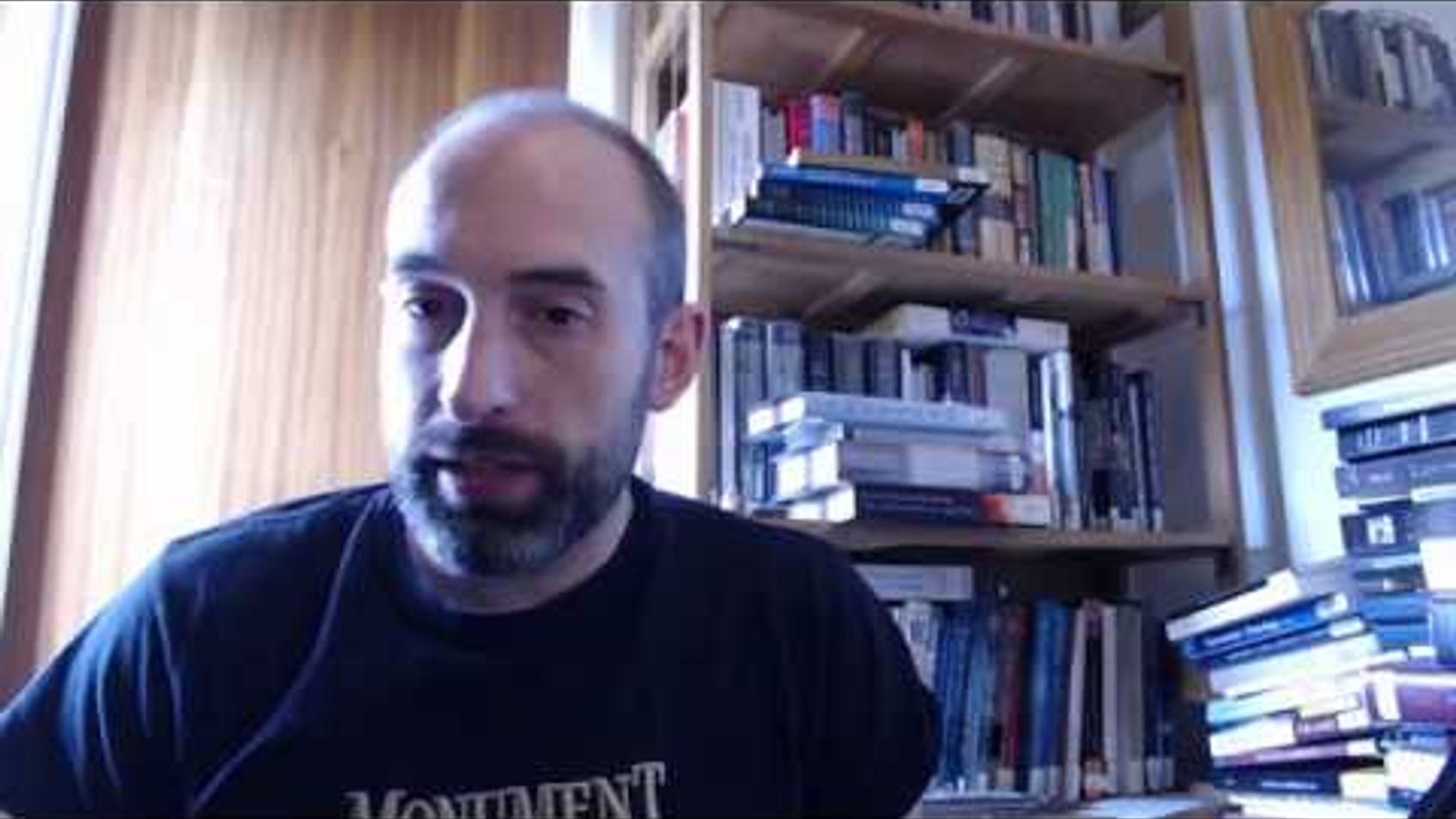Q&A#40 Why is the Tribe of Dan Excluded in Revelation 7?
September 5, 2018

Alastair Roberts
Today's question: "Why is the tribe of Dan excluded in Revelation 7's list of Israel?"
If you have any questions, you can leave them on my Curious Cat account: https://curiouscat.me/zugzwanged.
If you have enjoyed these videos, please tell your friends and consider supporting me on Patreon: https://www.patreon.com/zugzwanged.
My new Soundcloud account is here: https://soundcloud.com/alastairadversaria. You can also listen to the audio of these episodes on iTunes: https://itunes.apple.com/gb/podcast/alastairs-adversaria/id1416351035?mt=2.
More From Alastair Roberts

Q&A#41 Are Young Elders a Contradiction in Terms?
Alastair Roberts
September 6, 2018
Today's question: "What are your thoughts on 'young elders' in the church? Is there an age restriction for the office of elder?"
If you have any ques

Q&A#42 What is the Case Against Women's Ordination?
Alastair Roberts
September 7, 2018
Today's question: "How would you summarize the argument against the ordination of women?"
If you found this video interesting, you might be intereste

Summary of John Hughes 'The End of Work: Theological Critiques of Capitalism'
Alastair Roberts
September 8, 2018
Within this video, I discuss John Hughes' exceedingly stimulating book, 'The End of Work'. I highly recommend that you get your hands on a copy: https

Q&A#39 Should We Be Using the Lectionary?
Alastair Roberts
September 4, 2018
Today's question: "Do you commend the use of a lectionary for preaching? If so, what advantages does this approach have over preaching through whole b

Q&A#38 What Does Jesus' Abstention From Wine Mean?
Alastair Roberts
September 3, 2018
Today's question: "Does Christ's abstention from wine until the consummation of the Kingdom have any connection to Lemuel's mother's counsel in Prover

Q&A#37 Bumper Q&A Episode!!
Alastair Roberts
September 2, 2018
Today's questions:
1. Does the Scripture teach that the Holy Spirit indwells believers individually or corporately?
2. What do you think about ghosts,
More on OpenTheo

Are You Accursed If You Tithe?
#STRask
December 15, 2025
Questions about whether anyone who tithes is not a Christian and is accursed since Paul says that if you obey one part of the Mosaic Law you’re obliga

Did Jesus Prove He Wasn’t Sinless When He Overturned the Tables?
#STRask
December 29, 2025
Questions about whether Jesus proved he wasn’t sinless when he overturned the tables, whether Jesus’ response to the Pharisees in Mark 3:22–26 was a b

How Could One Person Trust Another Person on the Topic of God?
#STRask
March 5, 2026
Questions about how one person could trust another person on the topic of God, how STR obtained information about God that others haven’t obtained, an

What About Those Who Never Heard the Name of Jesus?
#STRask
December 22, 2025
Questions about what will happen to those who never heard of Jesus or were brought up in a different faith, whether there’s biblical warrant to think

How Can I Explain Modesty to My Daughter?
#STRask
November 27, 2025
Questions about how to explain modesty to a nine-year-old in a way that won’t cause shame about her body, and when and how to tell a child about a pre

How Do We Advocate for Christian Policy Without Making the Government Interfere in Every Area of Life?
#STRask
November 20, 2025
Questions about how to advocate for Christian policy without making the government interfere in every area of life, and the differences between the mo

Protestants and Catholics: What’s the Difference? With Chad Van Dixhoorn, Blair Smith, and Mark McDowell
Life and Books and Everything
November 26, 2025
How should Protestants think about the Catholic Mass? About the Eucharist? About the history and development of the papacy? In this panel discussion,

How Should I Respond to an LGBTQ Person Who Says He Feels Good About Who He Is?
#STRask
March 2, 2026
Questions about responding to an LGBTQ person who says he feels good about who he is, and whether—since we all have sin in our life we don’t consider

Lora Ries: Border Security and Immigration Policy
Knight & Rose Show
December 7, 2025
Wintery Knight and Desert Rose welcome Lora Ries to discuss border security and immigration policy. They explore Biden's policy changes, like ending R

Does God Really Need a “Pound of Flesh” to Forgive Sins?
#STRask
January 12, 2026
Questions about how to answer the challenge that God doesn’t need a “pound of flesh” to forgive sins but can simply forgive, and whether the claim in

Is It Possible There’s a Being That’s Greater Than God?
#STRask
February 5, 2026
Questions about whether it’s possible there’s a being that’s greater than God and that’s outside of God’s comprehension and omniscience, and how to ex

Are Demon Possessions and Exorcisms in the New Testament Literal?
#STRask
December 11, 2025
Questions about whether references to demon possessions and exorcisms in the New Testament are literal, how to talk to young children about ghosts, an

Keri Ingraham: School Choice and Education Reform
Knight & Rose Show
January 24, 2026
Wintery Knight and guest host Bonnie welcome Dr. Keri Ingraham to discuss school choice and education reform. They discuss the public school monopoly'

Why Should We Pray If God Already Knows What’s Going to Happen?
#STRask
January 29, 2026
Questions about why we should pray if God already knows what’s going to happen, how the effectiveness of prayer is measured, and whether or not things

Life and Ministry in Charlotte and in the SBC with Clint Pressley
Life and Books and Everything
December 15, 2025
In a rare cultural anomaly that may never be repeated in our lifetimes, the current SBC President and current PCA Moderator live in the same neighborh
